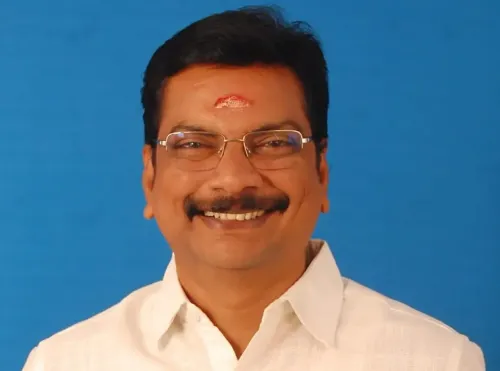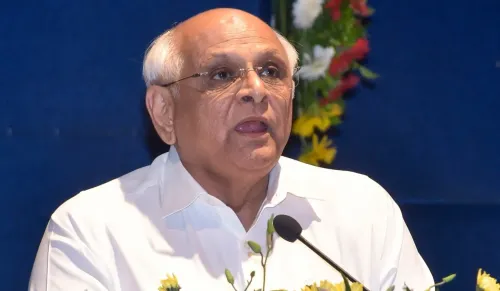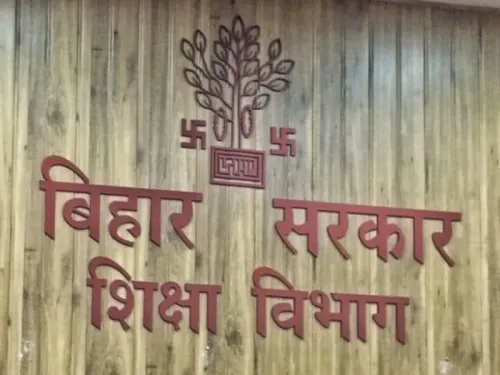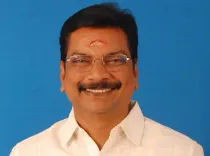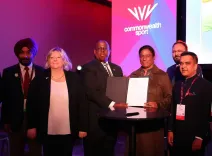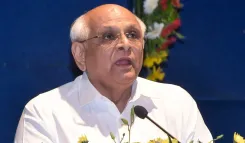Was the Quad Ministerial Meeting Effective in Enhancing Indo-Pacific Stability?
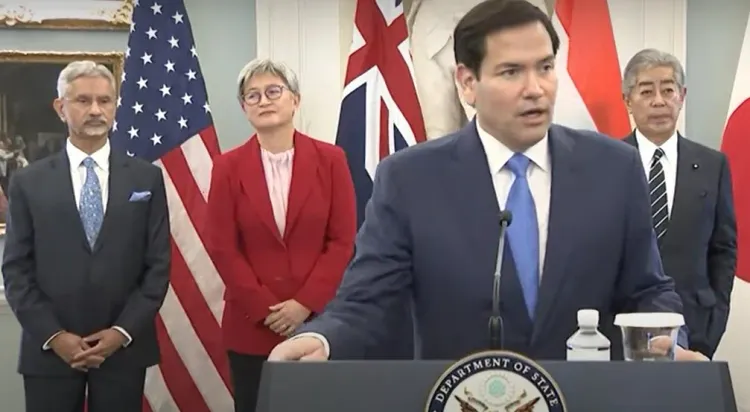
Synopsis
Key Takeaways
- The Quad ministerial meeting was described as highly productive.
- Strategic stability in the Indo-Pacific was a primary focus.
- India's right to defend itself against terrorism was affirmed.
- Collaboration on economic development, particularly in critical minerals, was discussed.
- Concrete actions and steps are anticipated as a result of this partnership.
Washington, July 2 (NationPress) External Affairs Minister S Jaishankar emphasized that the Quad ministerial gathering held on Tuesday was extremely effective and will fortify stability in the Indo-Pacific region.
Following the meeting, he shared on X that they “explored ways to make Quad more targeted and impactful regarding current opportunities and challenges”.
He described the session as “very effective” and asserted that it “will bolster strategic stability in the Indo-Pacific and ensure it remains free and open,” referring to his discussions with US Secretary of State Marco Rubio, as well as Foreign Ministers Penny Wong of Australia and Takeshi Iwaya of Japan, all representing key democracies in the area.
Prior to the meeting, he stated, “India has every right to protect its citizens from terrorism, and we will assert that right. We anticipate our Quad partners to comprehend and value this stance”.
Rubio, who chaired the meeting, remarked, “Numerous global issues exist, alongside challenges we face in our nations that can be addressed through our collaboration”.
He noted his frequent encounters with Jaishankar, even within just six months of his tenure.
“I often mention how extensively he travels. I keep up with the news, and he seems to be in a different part of the world every time I check. He has been incredibly active,” Rubio commented.
He highlighted that the other Quad nations “are crucial strategic partners and allies of the United States, and collectively, we share significant priorities and concerns globally”.
Rubio pointed out that the Quad focuses not only on security but also on economic development.
He expressed his personal commitment to diversifying the global supply chain of critical minerals, emphasizing the need not just for raw materials but also for processing and refining them into usable forms.
“Establishing a reliable and varied global supply chain for these resources is just one of many areas where we can collaborate and achieve genuine progress,” he stated. “This is the aspiration for our partnership”.
Rubio acknowledged that a challenge remains in transforming meetings “where we discuss concepts into actionable frameworks, into vehicles for implementing concrete measures”.
“The next phase in this valuable partnership is to witness actual actions and steps being undertaken collaboratively, in coordination, and in partnership for the benefit of our nations and, ultimately, numerous other countries worldwide,” he added.
“Many nations will gain from this partnership, even if they aren’t members,” he concluded.


